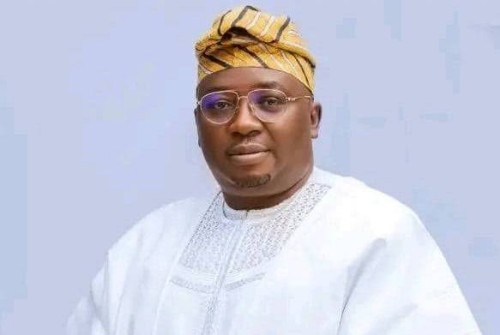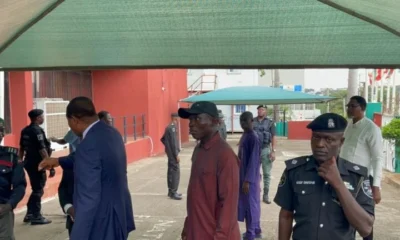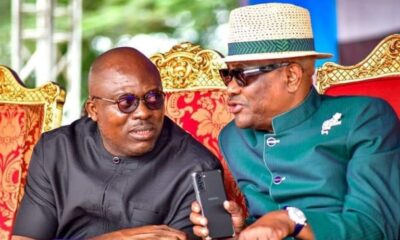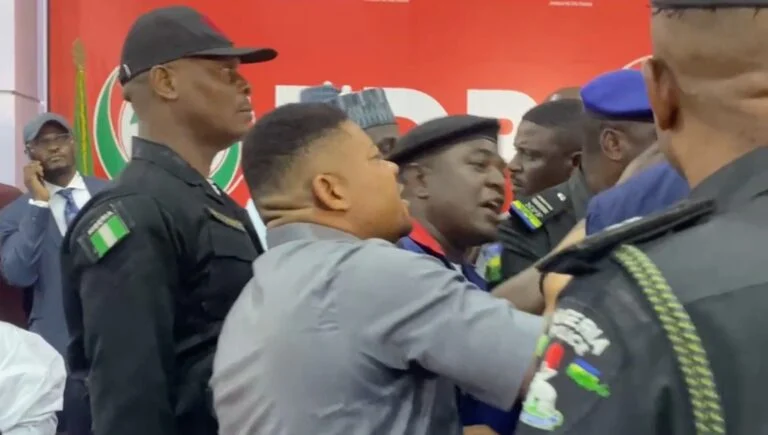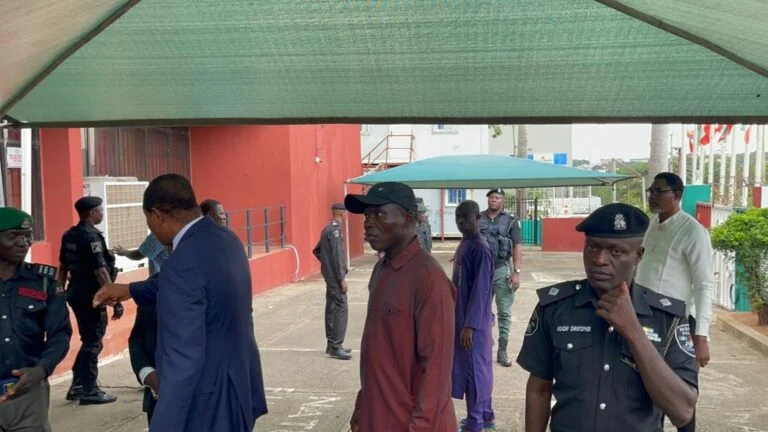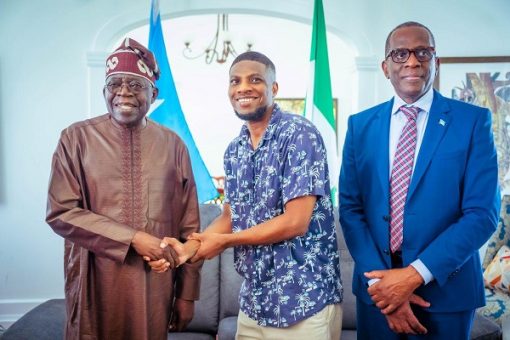The Nigeria Labour Congress, Trade Union Congress, and Organised Private Sector collectively criticized the recent increase in electricity tariffs for customers in the Band A Category on Wednesday.
The Nigerian Electricity Regulatory Commission raised the tariff for Band A customers due to factors such as naira depreciation, inflation, and others.
Several distribution companies, including Ibadan Electricity Distribution Company, Eko Electricity Distribution Company, and Kaduna Electricity Distribution Company, announced a tariff increase from N206.80 to N209.50 per kilowatt-hour for Band A customers on Wednesday.
Despite appearing to be a minor increase, the move was met with opposition from organized labor, private sector operators, and consumers.
They questioned the logic behind the power sector regulator’s decision to approve a tariff hike despite calls to reverse the previous increase.
In a statement, the acting General Manager of the Ibadan Electricity Distribution Company, Francis Agoha, said the review was duly approved by NERC as captured in the multi-year tariff supplementary order.
Agoha said the adjustment was necessitated by several key economic indices, including fluctuations in the exchange rate, the current inflation rate, available generation capacity, and the cost of gas.
“These factors have significantly impacted operational costs, and the new tariff will mitigate these financial pressures while continuing to deliver high-quality electricity services,” Agoha disclosed.
He said the adjustment affects only our Band A customers, adding that “the tariffs for Bands B, C, D, and E remain unchanged.”
The IBEDC boss acknowledged that the rise in tariffs could be a concern for customers, however, he said the increase was necessary.
“We understand that any change in tariffs can be a concern for our customers, and we assure you that this adjustment is necessary to maintain and improve the quality of our services. Our goal is to ensure that you receive the best possible value for your money,” he stated.
It was gathered that the tariff hike is coming amid complaints from customers, including manufacturers as well as public and private institutions that their monthly electricity bills are becoming grossly unaffordable.
Also, Kaduna Disco, in a statement titled, ‘Upward Review of Tariff for Band A Feeders’, disclosed that the new tariff became effective on July 1.
“Dear esteemed customers, the management of Kaduna Electric informs the public of an upward review in the tariff of Band A feeders from N206.80/kWh to N209.5/kWh.
“The review is effective from July 1, 2024, and affects both prepaid and postpaid customers.
“Kaduna Electric assures customers on its Band A feeders of the continued availability of 20-24hrs supply daily as stipulated in the Service Based Tariff regime,” the statement read.
It clarified, “The public should please note that the tariff for Bands B, C, D, and E remains unchanged.”
It was gathered that the hike in tariff had to do with the rise in monthly electricity subsidies from N102.30bn in May to N158.53bn in June.
Earlier report had it that the N56bn increase in electricity subsidies was a result of the rise of the dollar against the naira and the accelerating inflation in the country.
In April, the NERC raised Band A tariffs to N225 per kilowatt-hour from N68. At that time, one dollar was trading at N1,463, according to the commission.
In documents released by the NERC in June, the total subsidies for April stood at N140bn and inflation was 31.7 percent.
In May, the commission reduced the Band A tariff to N206.80/KWh when the dollar was N1,227.8 and the inflation rate had soared to 33.2 percent.
It was observed that the tariff shortfall, otherwise known as subsidy, was N102.3bn in May.
However, there was a rise in the subsidy claim from the previous N102.3bn to N158.5bn in June.
The NERC data showed that a dollar traded for N1,470 while the inflation rate rose to 34 per cent in June, impacting operational costs, including the cost of power generation, transmission and distribution.
For example, in Abuja Electricity Distribution Company, the commission said the energy delivered was 611 megawatt-hours per hour in April. The same was delivered in May and June.
While the generation cost was N103.9 per kilowatt-hour in April, it dropped to N87.33/KWh in May and rose to N104.45/KWh in July.
The AEDC had a transmission and admin cost of N9.1/kWh in April, N8.9/kWh in May and N9.8/kWh in June.
It was gathered from the NERC data that the end-user cost-reflective tariff in AEDC was N180.2/kWh in April; N156.9/kWh in May and N181.7/kWh in June.
Similarly, the end-user allowed tariff was N123.51/kWh, N116.23/kWh and N116.23/kWh in April, May and June, respectively, indicating that despite the rise in the cost of power production, the NERC pegged the allowed tariffs at the same rate in May and June.
With that, the Federal Government would pay an additional N56bn as electricity subsidy in June, compared to what it would pay in May.
As a result, the Ministry of Power resorted to an upward review of the current Band A tariff.
When the commission reduced the Band A tariff to N206/KWh in May, its spokesperson, Usman Arabi, told one of our correspondents that the reduction was due to the naira appreciation in the foreign exchange market.
It was gathered that the government was reluctant to return to the initial N225/kWh, considering the mass protest that greeted the removal of subsidy for premium electricity consumers.
The National Vice President of the Nigerian Association of Small-Scale Industrialists, Segun Kuti-George, said the move was going to cause an additional shutdown of industries.
“We do not need any further increase now. Any increase in inputs would translate to an increase in cost. We are already experiencing an increase in cost, which means we are facing an increase in the cost of manufacturing. This is unsustainable.
“The constant increase in cost will lead to a decrease in demand for locally made goods, making them less competitive with imported goods from China. This will result in a decrease in profit, potentially leading to a shortage of industries. If industries are unable to sell their products, they may resort to reducing salaries or laying off workers, which could lead to an increase in crime.
“With inflation at over 30 per cent and interest on bank loans at a high per cent, we should be exploring ways to subsidise locally made goods to make them more competitive. Instead, we are increasing costs, making it harder for industries to survive. This is frustrating, especially when we see other countries like the Republic offering power at a lower cost.”
Kuti-George said the power sector should be unbundled to allow competition, similar to the telecoms sector, to drive down cost and improve service quality.
He added, “The issue boils down to monopoly. If we unbundle the power sector and allow anyone to generate and sell power, we won’t be having this conversation. We’ve seen the impact of competition in the telecoms sector, where SIM cards have gone from N56,000 to being free. We need to apply the same principle to the power sector to make it more competitive.”
The National President, Association of Small Business Owners of Nigeria, Dr Femi Egbesola, said the increase in electricity tariff would negatively affect the private sector.
He said, “Many organisations are already struggling to stay afloat, and this hike will push them over the edge. Universities are warning of impending bankruptcy, and businesses will be forced to close shop.
“This will lead to higher inflation as companies pass on the increased costs to consumers, resulting in higher prices for goods and commodities. Businesses that can’t absorb the costs will shut down, leading to job losses and a decline in economic activity. This will have a ripple effect on the entire economy, reducing government tax revenues and exacerbating social issues.
“We urge the government to reconsider this decision, as it will only serve to stifle the economy and worsen inflation. We need policies that support economic growth, not those that strangle it. The private sector is already struggling, and this increase will be the final nail in the coffin for many businesses.”
The Director-General, Lagos Chamber Of Commerce and Industry, Dr Chinyere Almona, had earlier called for a reduction in inflation and rate hikes.
She said, “As inflation continues to rise despite the various interventions by monetary and fiscal authorities, we must take more decisive and multifaceted action to stabilise prices and support our citizens’ purchasing power.
“With several hikes in the past months, we are yet to record a significant impact on stabilising prices. The twin burden of high inflation and interest rates is overheating the economy and causing increased volatility and uncertainty.
“The private sector is once again thrown into more profound loan repayment crises as interest rates adjust to the new monetary policy rates. We are likely to see a reduction in demand as purchasing power weakens and this may lead to lower industrial production and loss of jobs eventually.”
A member of the Nigerian Economic Summit Group, Faith Iyoha, said the best route was for the private sector to depend on alternative power supply.
The Executive Director, Electricity Consumer Protection Centre, Princewill Okorie, condemned the hike in tariff.
“We need to ask the legislators what they are doing. There was a public hearing on this tariff increase. Is it that the legislators don’t have any authority anymore? Why did the NERC go ahead to increase tariffs despite all we have done? That means nobody calls them to order. Are they above the law? The legislators were elected by the consumers who are the electorates. It is expected they protect their interest. I was at the public hearing and I made presentations there.
“If the consumers take to the street, police will take out their guns, but now that the rights of the consumers are being violated and they are treated like slaves, what is the police saying? What are the Leaderships of the National Assembly doing? NERC is violating the laws by the legislators that put them in place.
“Who else will deliver Nigerians? It is like the legislature does not have power anymore. Why did they spend more to conduct the public hearing on the tariff increase when they knew there would be no result? The Manufacturers Association of Nigeria took Discos to court. What is the verdict? Who do the people respect?” Okorie queried.
An expert in the electricity industry, Bode Fadipe, said the government should not have considered a tariff hike this time.
Fadipe urged the government to be sensitive to the economic realities of the moment, saying that people’s income had reduced drastically.
He noted that contemplating a tariff hike currently may be too simplistic.
“I don’t think a tariff adjustment is necessary to follow. The government has to be sensitive to the economic reality of the moment
“Disposable income has reduced greatly. To contemplate tariff adjustment may be too simplistic,” he said.
The Federal Government recently stated that about 85 per cent of Nigerians still enjoyed the electricity subsidy in the country, despite the over N1tn that would be saved from the fresh tariff hike.
It stated this in response to the continued reactions from Nigerians over the recent increase in electricity tariff.
The regulator said the new tariff signified a removal of electricity subsidy for Band A consumers, who constituted about 15 per cent of the total number of power users across the country.
- Electricity Declare Resistance
The Deputy General Secretary of the Nigerian Union of Banks, Insurance and Finance Institution Employees, Shola Aboderin, said, “I know that the hike in tariff is going to have an effect on production, invariably it will affect the prices of commodities. Today, Nigerians are crying about the high cost of commodities in the market.
“I believe that this is not the period for the government to encourage Discos to increase their tariffs. How many people can afford to eat three square meals in a day? The purchasing power of Nigerians is presently very low because of the high price of commodities in the market.”
Also commenting on the issue, the Secretary-General, National Union of Electricity Employees, Ogochukwu Igwebike, said workers in the power sector would resist the latest tariff hike.
“That decision to increase tariff is not okay. The NLC and TUC had kicked against the initial hike and we also joined in opposing it. But to our surprise they raised it again despite the concerns on ground.
“We are going to respond to that and we are saying no to it. We don’t accept it and it shall be resisted by workers, because the current economic realities do not support any such increase,” he stated.
On his part, an official of the Nigeria Labour Congress declared that the Nigerian Electricity Regulatory Commission did not seek the inputs of NLC before approving the latest tariff hike.
The NLC official, who pleaded not to be named due to lack of authorisation to speak on the matter at the moment, said the labour union would resist the hike.
“Any additional increase on any utility bill is an extra burden on Nigerian workers and Nigerians in general, and it is not acceptable, especially at this time that Nigerians are going through the most harrowing experience ever.
“Let the people breathe. This is another affliction on the Nigerian workers and it is unacceptable. It is also a disdain by the Discos and NERC to the National Assembly.
“The National Assembly had set up a committee to look into the last increase in the electricity tariff. So if the Discos and NERC have respect for the National Assembly, they won’t choose this time to increase the tariff. So this is gross disrespect.
“Therefore the National Assembly should actually react to this. You can’t adjust tariffs without NERC approval and NERC cannot give approval without consulting the stakeholders, and the NLC is one of the major stakeholders. But we were not consulted, and if we were not consulted and the tariff was increased, then it calls for concern,” the official stated.
The Nigeria Labour Congress faulted the move by the Discos without due consultations with members of the civil society and the Organised Labour.
The Deputy Head of the NLC political commission, Prof. Theophilus Ndubuaku, made this known in an interview with one of our correspondents in Abuja.
“The truth about it is that on the issue of electricity tariff hike, consultations must be made with the civil society and organised labour. Why are they not concerned about legality? It shows you that they don’t care, they just do what they want to do, they want to intimidate people. They do not seem to care at all. Instead of even telling Nigerians, appease us, they are telling us to switch off our fridge.
“We are also watching to see what they come up with as regards the minimum wage. We also want to know what the reaction of the populace will be.”
On his part, the Chairman of Trade Union Congress in Ekiti State, Sola Adigun, said the increase in power tariff was unacceptable to workers in the state.
“Speaking as the representative of workers under the auspices of TUC and as a citizen of this country resident in Ekiti State, that tariff hike is unacceptable. With all sincerity, it is inhuman.
“Every citizen of this country is crying and even the government had said on several occasion stated that it knows the hardship of Nigerians, but there are some steps and policies the present administration is taking that are totally not in alignment with their pronouncements.
“With our challenge here in Ekiti, I don’t know whether we even have Band A or B or C because as I am speaking now, the last time we experienced public electricity in my area in Ado Ekiti was in July 2023. In the next few days, it will be a year. You can see that majority of Nigerians and Ekiti people have been on alternative power supply source either generator or solar power.
“So, for whosoever to increase the electricity tariff, it is not acceptable because the power is not being supplied. We are expecting to hear from the national secretariats of the TUC and NLC. However, in Ekiti State here, it is unacceptable.”
Speaking with news men, Osun TUC Chairman, Abimbola Fasasi, who said his reaction was his personal opinion on the issue, described increase in electricity tariff for Band A customers as a wicked decision.
He further said, “The increment is a wicked affront to the entire Nigerians not just the workforce or the leadership of the Labour Movement.
“You would recall that we are still challenging the one on ground for the Band A, B and others. The classification they did before increasing the tariff.
“In fact, the reversal of the earlier increase was part of the demands in the recently suspended strike. We have not really resolved that, we are still in discussions, and the tariff is being jacked up again. It is unacceptable; my personal opinion.”
However, the NLC in Abia State said it would consult with its national body.
Chairman of NLC in Abia, Ogbonnaya Okoro, said, “It appears that it was based on national instruction. If so, we will consult with our national body, the NLC and TUC.”
But in Sokoto State, the union condemned the latest increase in the electricity tariff.
The NLC Secretary in Sokoto, Hamisu Hussain, while reacting to the increment, said even though no customer in Sokoto was under Band A, such a hike should be resisted.
He described the increase as a ploy by Discos to increase the tariffs across the country irrespective of bands.
Meanwhile, the Chairman of the union in Kebbi State, Murtala Usman, while reacting to the increase, said only the state government house and some top government facilities enjoy about 20 hours power supply.
He, however, warned Kano Disco not to joke with the masses by making any attempt to increase the tariff across the board.
Also, the Port Harcourt chapter of the Petroleum and Natural Gas Senior Staff Association of Nigeria kicked against the newly effected hike in tariff price by electricity distribution companies across the country
The PENGASSAN Port Harcourt Zonal Chairman, George Nwoko, described the move as unfair to Nigerians.
He stated, “Nigerians are going through a lot of suffering so any additional hike in any commodity will also affect their well being.
“We are still on the table for the minimum wage, we have not concluded on that and if they are approving any additional hike in tariff, it’s an act of wickedness to the masses and we will resist it”
Also, the Plateau State chapter of the NLC condemned the new hike in electricity tariff.
The state Chairman of the NLC, Eugene Mangji, “The new tariff hike by the Discos, if true ,is sad and insensitive .How can they effect a new increment when the previous one had been rejected by the suffering Nigerians.”
Credit: The Punch

 BIG STORY5 days ago
BIG STORY5 days ago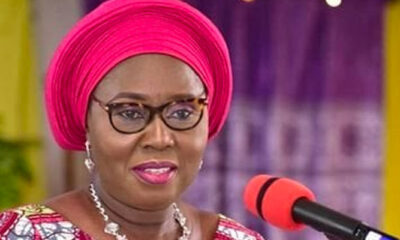
 BIG STORY5 days ago
BIG STORY5 days ago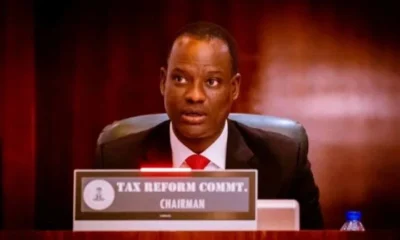
 BIG STORY4 days ago
BIG STORY4 days ago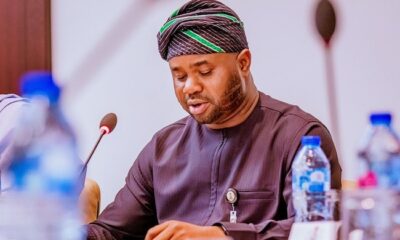
 BIG STORY4 days ago
BIG STORY4 days ago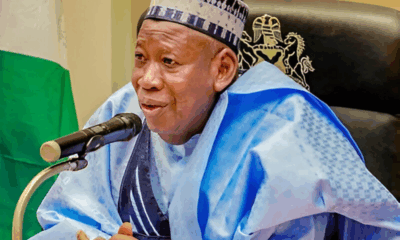
 BIG STORY3 days ago
BIG STORY3 days ago
 BIG STORY4 days ago
BIG STORY4 days ago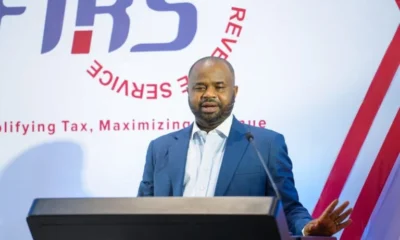
 BIG STORY4 days ago
BIG STORY4 days ago
 BIG STORY4 days ago
BIG STORY4 days ago




